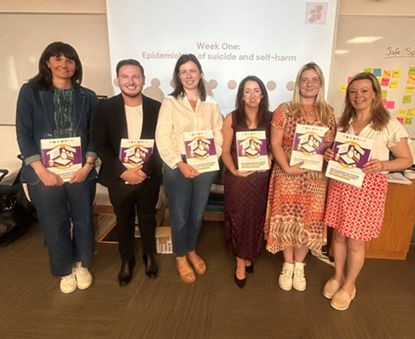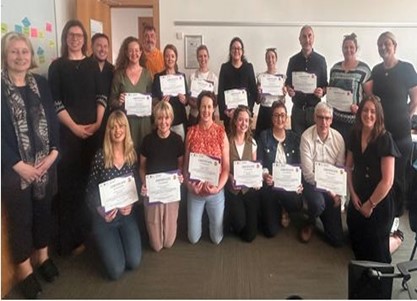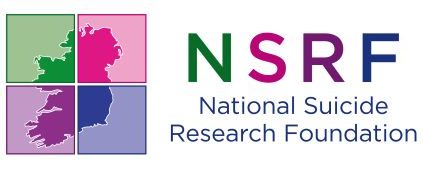Train-the-Trainer Programme Expands Suicide Prevention Education Capacity Across 13 Higher Education Institutions
On May 13th and 14th, 2025, educators from across Ireland came together for a national Train-the-Trainer event with one clear goal: to support the long-term delivery of a suicide prevention module for undergraduate health and social care students.

Funded by the Strategic Alignment of Teaching and Learning Enhancement (SATLE) initiative, the two-day event was a major step forward in the sustainable rollout of the “Prepare, Support, Prevent” module. Designed to equip students with the knowledge, skills, and confidence to support people experiencing suicidal distress, the module has already been piloted in two Irish universities. Now, it’s ready to grow.
Thanks to this training programme, 13 Higher Education Institutions (HEIs) across Ireland now have in-house capacity to deliver the module to their students. This marks a major milestone in suicide prevention education for future healthcare professionals.
Throughout the event, trainers explored best practices in teaching sensitive topics, discussed how to tailor content to local needs, and began planning for module implementation within their own institutions. The programme also opened important conversations about how the module can be embedded in curricula and evaluated on a wider scale going forward.

The event was co-led by a multidisciplinary team from the National Suicide Research Foundation, University College Cork, University College Dublin, and the HSE National Office for Suicide Prevention, including Dr. Michelle O’Driscoll, Ms. Kerrie Gallagher, Dr. Eve Griffin, Ms. Ailish O’ Neill, Dr. Paul Corcoran, Prof. Ella Arensman, Dr. James O’Mahony, Dr. Claire Magner, and Prof. Eilish McAuliffe.
By investing in educators, this initiative ensures that more students – future nurses, social workers, doctors, and allied health professionals – will be better prepared to respond with empathy, skill, and confidence in the face of suicide risk.
This is a hopeful step towards a better prepared workforce and, ultimately, safer, more supportive communities.

